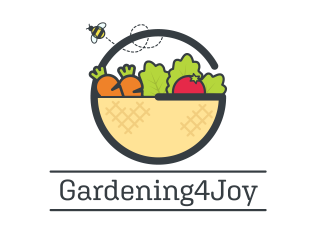I have been starting seeds indoors for over 5 years. In fact, during most of the year, I have seeds going through the seed starting process. Why then has it taken me so long to realize this one quick and easy seed starting tip, I do not know.
Ok, I will not make you wait for the tip. The tip is this, plant seeds in their own individual seed beds (e.g., containers). What do I mean by this? Let’s take an example. Assume you are planting tomato, cucumber, and eggplant seeds. In my old approach I would use a 12-plug container. In each plug, I planted one variety of seeds. Therefore, four plugs contained tomato seeds, four plugs contained cucumber seeds, and four plugs contained eggplant seeds.
Well, the problem with this approach is that tomato, cucumber, and eggplant seeds all germinate at separate times. Once a seed germinates, it has different requirements than a seed that has not germinated. The amazingly simple, quick, and easy solution is to give each type of seed its own seed bed/container.
Seed Starting Tip: Seed Beds
A seed bed is nothing more than a container that has drainage holes on the bottom. Instead of planting a variety of seeds in one container, use a separate container for each type of seed. The seed starting process is no different except for the fact that each container only has one variety of seed. Also, transplanting will happen earlier in the seed starting process.
Here is a quick refresh on starting plants indoors with seeds using the seed bed approach.
Step 1 – Choose a container

Choose a container and fill with an excellent quality seed starting mix. Read the directions on your seed starting mix as you will need to add water to moisten the mix before filling the container. The number of plants you grow will dictate the size of the container. Here are guidelines:
- 4-inch square container for 4-6 seeds
- 6-inch round container for 6-10 seeds
- Six-by-four-inch rectangular container for 10-16 seeds
Step 2 – Plant one variety of seed in a container

Plant only one variety of seeds in each container. Think of your container as a miniature garden bed. Now, plug containers are still great to use if you are growing a large number of plants. For example, when I grow flowers from seeds, many times I grow at least 12 plants from each variety of flower seeds. In this case, I use a 12 plug container. Each plug has the same seed.
Step 3 – Retain moisture for seedling growth
If your container has a dome, place the dome over the container. If not, simply place plastic wrap over the container. This will hold moisture within the container.
Step 4 – Use a seedling heat mat

Place your container on a seedling heat mat. These are inexpensive and speed up the seed germination process. Seeds need moisture and warmth to germinate. The seedling heat mat warms up the seed starting mix and thus speeds up germination.
Step 5 – Remove dome and heat mat after germination
Once most seeds have germinated, remove the dome/plastic wrap. Remove the seedling heat mat from under the container.
Step 6 -Place seedlings under grow lights

Place the newly emerged seedlings under grow lights for 12-16 hours per day.
Step 7 – Transplant seedlings into individual containers

Once the seedlings have their first set of true leaves, transplant each individual seedling into their own container. Carefully dig up the seedlings and gently pull them apart. Handle the seedling by the leaves as opposed to the stems and roots. Place in the new container filled with a quality potting mix and water. If the potting mix does not contain any fertilizer, then the seedling will need supplemental nutrients. Fertilize once a week when you water. When using a liquid fertilizer, dilute to half strength. I use an organic liquid fish emulsion fertilizer.
Step 8 – Continue growing under grow lights
Place the transplanted seedlings back under the grow lights until they have at least two sets of true leaves.
Seed Starting Tip: Conclusion and resources
I hope you find this amazingly simple, quick, and easy seed starting tip helpful. Please leave a comment with your thoughts and experience.
For a complete guide on seed stating, here are additional resources.







 Please check your email to confirm subscription.
Please check your email to confirm subscription.